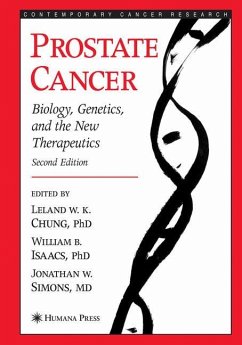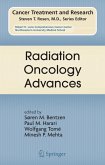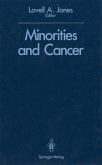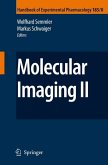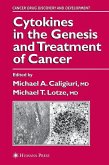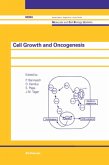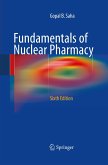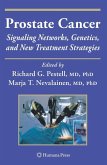Prostate Cancer: Biology, Genetics, and the New Therapeutics, Second Edition, reviews new, valuable approaches to the treatment of prostate cancer in men. The latest edition contains new material on molecular imaging, new treatments for prostate cancer, molecular targets, cell signaling pathways, bioinformatics, and pathogenomics. The book details the latest innovations and advances in prostate cancer and may be used as a rapid reference text for readers.
The volume profiles the latest advances in cancer research and treatment and includes profound studies in prostate stem cells, cancer-host interactions, hedgehog signaling in development and cancer, cholesterol and cell signaling, gene therapy for advanced prostate cancer, and noninvasive strategies such as molecular imaging to visualize gene expression. This new edition also investigates expression profiling and somatic alterations in prostate cancer progression and linkage studies of prostate cancer families to identify susceptibility genes. The issues of racial differences in prostate cancer mortality, radiotherapy for the treatment of locally advanced prostate cancer, recombinant antibody candidates for treatment, taxane-based chemotherapy, lethal phenotypes, and novel and efficient translation clinical trials are also presented in great depth.
Prostate Cancer: Biology, Genetics, and the New Therapeutics, Second Edition, provides readers with a general reference for prostate cancer from prevention to therapy and will be of value to clinicians, scientists, and administrators who strive to solve the cancer problem.
The volume profiles the latest advances in cancer research and treatment and includes profound studies in prostate stem cells, cancer-host interactions, hedgehog signaling in development and cancer, cholesterol and cell signaling, gene therapy for advanced prostate cancer, and noninvasive strategies such as molecular imaging to visualize gene expression. This new edition also investigates expression profiling and somatic alterations in prostate cancer progression and linkage studies of prostate cancer families to identify susceptibility genes. The issues of racial differences in prostate cancer mortality, radiotherapy for the treatment of locally advanced prostate cancer, recombinant antibody candidates for treatment, taxane-based chemotherapy, lethal phenotypes, and novel and efficient translation clinical trials are also presented in great depth.
Prostate Cancer: Biology, Genetics, and the New Therapeutics, Second Edition, provides readers with a general reference for prostate cancer from prevention to therapy and will be of value to clinicians, scientists, and administrators who strive to solve the cancer problem.
From the reviews of the second edition:
"This book relates the latest knowledge and technology in translational research in prostate cancer. It is a valuable reference and guide for any one working in translational prostate cancer research - and it is easy to read. This is a must read for those who are about to enter the field of translational research in prostate cancer, but it also serves as an excellent reference for established investigators." (Chung Lee, Doody's Review Service, July, 2008)
"Seventy-five contributors produced this excellent textbook (Chung, et.al) which offers an overview in the wide field of prostate cancer. ... Researchers will find in this textbook comprehensive information and clinicians will obtain an excellent overview of the utility of research that has bearing on the future of their practise." (European Urology Today, August, 2008)
"The book contains three parts from which part one covers 'Biology and Imaging'. Part II deals with 'Genetics' and part III covers'Therapeutics'. ... It can be a good guide for any person interested in research and daily treatment of prostate cancer because it covers a wide range of interesting topics and it stimulates the reader to further elaborate certain topics of prostate cancer." (Sylvie Rottey, Acta Clinica Belgica, Vol. 63 (3), 2008)
"This book relates the latest knowledge and technology in translational research in prostate cancer. It is a valuable reference and guide for any one working in translational prostate cancer research - and it is easy to read. This is a must read for those who are about to enter the field of translational research in prostate cancer, but it also serves as an excellent reference for established investigators." (Chung Lee, Doody's Review Service, July, 2008)
"Seventy-five contributors produced this excellent textbook (Chung, et.al) which offers an overview in the wide field of prostate cancer. ... Researchers will find in this textbook comprehensive information and clinicians will obtain an excellent overview of the utility of research that has bearing on the future of their practise." (European Urology Today, August, 2008)
"The book contains three parts from which part one covers 'Biology and Imaging'. Part II deals with 'Genetics' and part III covers'Therapeutics'. ... It can be a good guide for any person interested in research and daily treatment of prostate cancer because it covers a wide range of interesting topics and it stimulates the reader to further elaborate certain topics of prostate cancer." (Sylvie Rottey, Acta Clinica Belgica, Vol. 63 (3), 2008)

